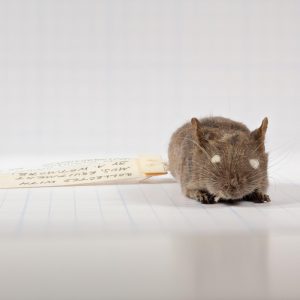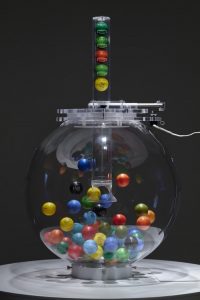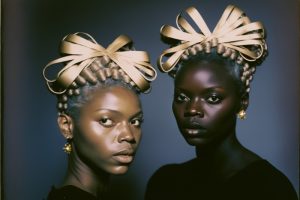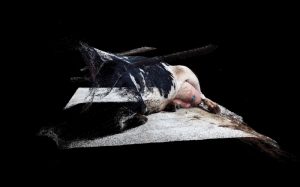E-volver is a software that invites an “image-breeding-machine” and a human “gardener” to collaborate together. While the machine has no notion of the aesthetic qualities of the evolved images, the human can barely understand what internal processes are taking place.
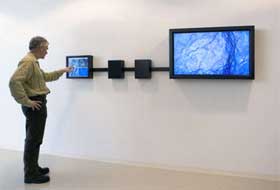
It all begins with a an incoherent tangle of moving lines and points and colored planes, and on the basis of the user’s personal preferences, this gradually evolves into a more coherent image.
The software generates artificial ‘organisms’ measuring one pixel. Each ‘organism’ is made up of genes that determine how the organism will ‘behave’ on the monitor. The genes read the properties of the surrounding pixels and, based on what they find, tell the organism what to do and where to move next.
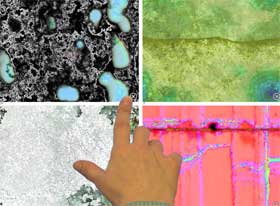
Each image is like a garden in which newly-cultivated plants are left to their own devices. The way images look is not only a result of the collective behavior of the organisms, but also the result of the users. By using touching the screen, visitors can influence the visual patterns displayed on the monitors. They can deactivate one of the four pixel gardens. Voting out the least exciting images devalues those particular genes and upgrades the genes of the three surviving pixel gardens. In other words a group of organisms evolves that contains properties that generate the most pleasing collective image. That is, until the computer “resets’’, which happens when a predetermined number of votes has been cast. And then the whole process begins again.
E-volver monitors have been installed at the Leiden University Medical Center (NL). The work echoes the research that takes place in the LUMC. Whereas the scientists are mainly focused on biochemistry, genetics and the evolution of biological life, the installation shows how autonomous processes such as growth and evolution, which can maybe be understood theoretically but which are never directly perceptible in daily life, can be perceptible on a sensory level.
A work by Erwin Driessens & Maria Verstappen, of Tickle Salon the fame.
Via re-qualia.

